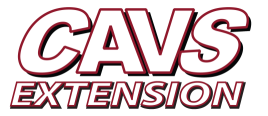Engineering Training (Nissan and Suppliers Only)
4M Change Management (Nissan Supplier Training Program)
AutoCAD (Nissan employees only)
Firewall Containment (Nissan Supplier Training Program)
Measurement System Analysis: Gage Repeatability & Reproducibility (Nissan employees and Suppliers only)
PFMEA-Control Plan (Nissan Supplier Training Program)
Problem Solving & 8D (Nissan Supplier Training Program)
SPC - Statistical Process Control (Nissan employees only)

